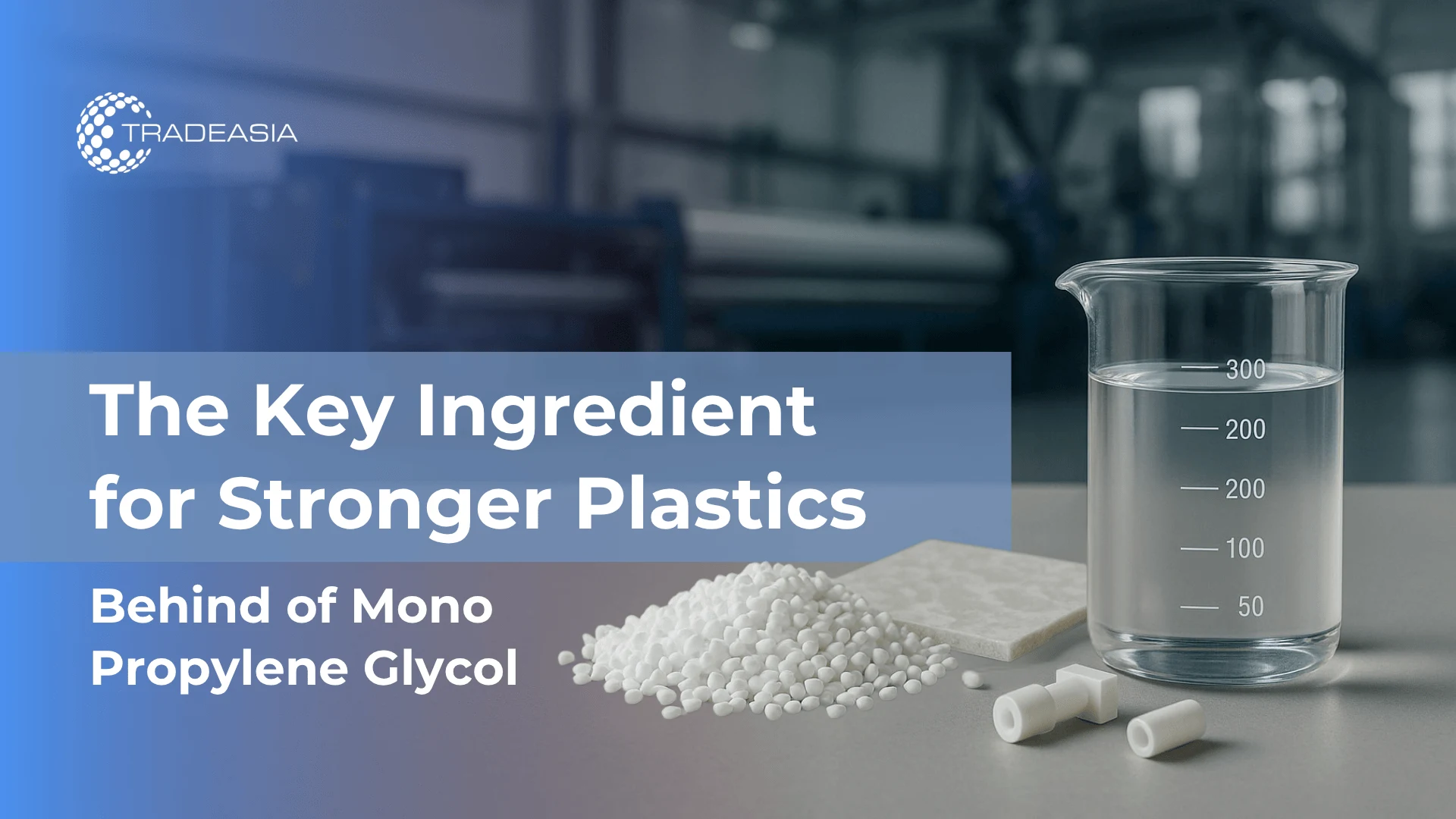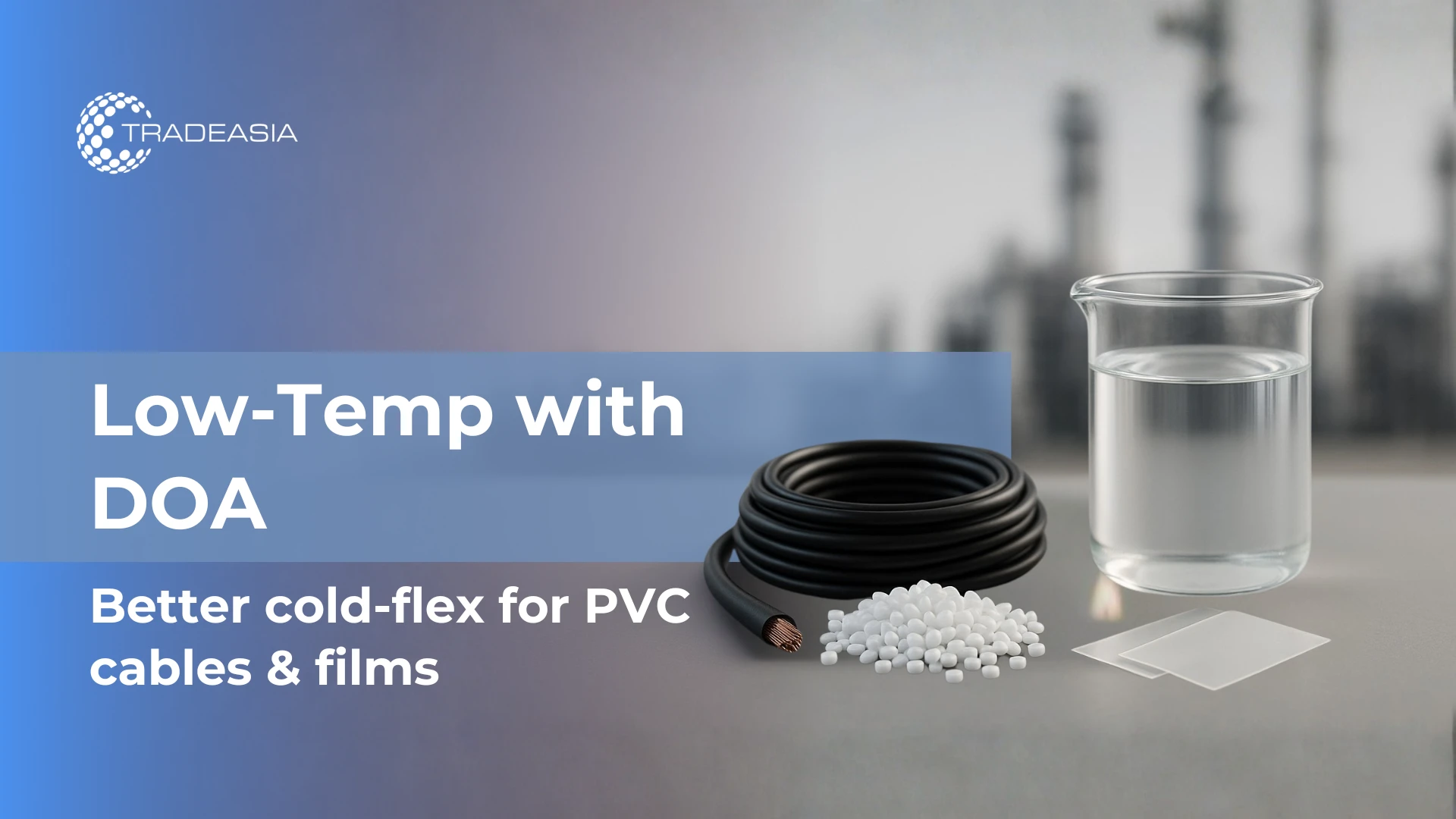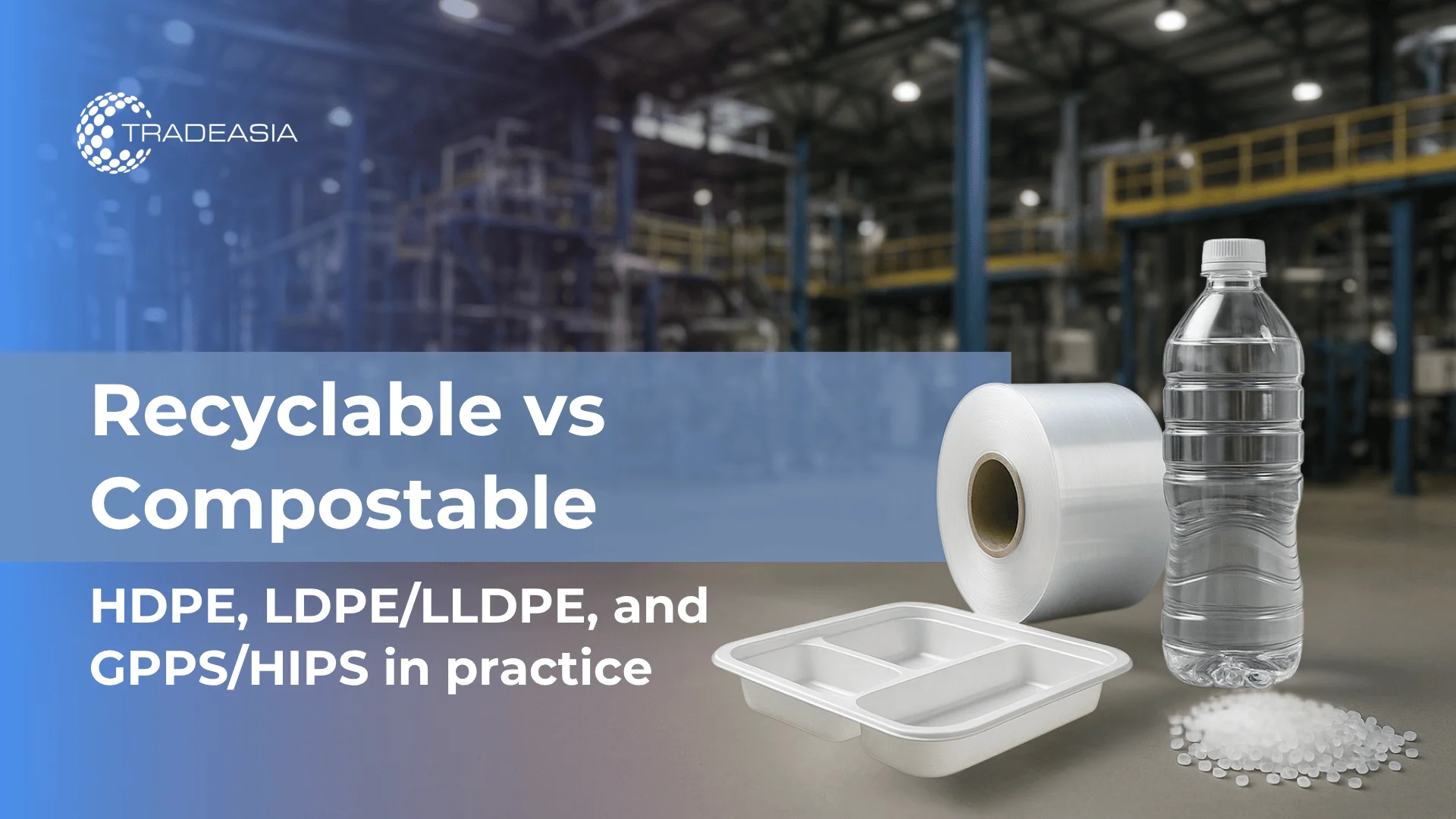1. Introduction to Mono Propylene Glycol (MPG)
Mono Propylene Glycol (MPG) is a colorless and odorless liquid known for its stability, versatility, and safety profile. It is mainly produced from propylene oxide and serves as a vital ingredient in industries such as plastics, cosmetics, and coatings. According to PubChem, MPG is classified as a diol compound with excellent hygroscopic and solvency properties.
In the plastic industry, MPG is widely used to produce unsaturated polyester resins (UPR), which form the backbone of fiberglass and thermosetting plastics. Its molecular structure allows it to function as both a humectant and solvent, enhancing polymer strength and flexibility.
The global relevance of MPG is growing as industries transition toward eco-friendly and safer alternatives to ethylene glycol. Studies published on ScienceDirect highlight its reduced toxicity and high biodegradability, making it ideal for sustainable applications.
To ensure consistent supply, businesses increasingly partner with trusted Mono Propylene Glycol suppliers like Plastradeasia, a B2B platform that offers high-grade MPG suitable for plastic and resin production.
2. Industrial Applications in Plastics and Polymers
MPG plays a crucial role as a plasticizer, solvent, and stabilizer in polymer production. Its hygroscopic nature allows it to control moisture and improve flexibility in PVC and polyurethane systems. This improves product resilience under varying humidity and temperature conditions, a benefit documented by ResearchGate.
As a key intermediate in polyester resin synthesis, MPG enhances polymer cross-linking, resulting in high mechanical strength and better surface finish. This makes it essential for automotive parts, building materials, and consumer plastics.
MPG also contributes to coatings and adhesive formulations, improving film formation and gloss retention. Manufacturers sourcing through Plastradeasia’s Download Center can access technical specifications and material safety data sheets (MSDS) to ensure quality and compliance.
Finally, as industries shift toward biodegradable polymers, MPG is being recognized for its eco-friendly chemical profile, which aligns with global sustainability goals outlined by the European Chemical Agency (ECHA).
3. Key Benefits and Chemical Properties
Mono Propylene Glycol exhibits excellent chemical and thermal stability, making it ideal for high-temperature applications. Its boiling point of approximately 188°C and low freezing point allow for consistent performance under both hot and cold conditions. According to ChemicalSafetyFacts.org, MPG is safe, non-corrosive, and approved by regulatory agencies for use in food and pharmaceutical applications.
MPG’s biodegradability and low toxicity further distinguish it from other glycols. Its compatibility with water and organic solvents makes it invaluable in industrial blending and resin production. Manufacturers prefer MPG due to its ability to maintain polymer flexibility without compromising strength.
In the context of plastics, MPG acts as a moisture retainer and processing aid, helping prevent brittleness and improving molding precision. These benefits underscore why many plastic industry suppliers rely on consistent, high-purity sources such as Plastradeasia to ensure product performance and compliance.
Overall, MPG’s superior chemical characteristics allow it to serve as a reliable, multi-functional ingredient across numerous production processes — from plastics and coatings to lubricants and hydraulic fluids.
4. Market Demand and Supply Trends
The global Mono Propylene Glycol market is witnessing rapid growth, particularly in Asia-Pacific regions where polymer and resin industries are expanding. Data from MarketWatch forecasts a 5% CAGR through 2030, driven by increased demand in construction materials, automotive components, and eco-friendly plastic manufacturing.
China, India, and Indonesia are emerging as major production hubs due to their strong petrochemical bases and cost-effective labor markets. However, raw material volatility and logistics challenges often impact international supply chains. To overcome these constraints, manufacturers rely on integrated distributors like Plastradeasia for stable, region-specific sourcing solutions.
Furthermore, the global transition toward green chemistry is boosting demand for MPG derived from renewable sources. Companies are investing in bio-based propylene oxide technologies that promise lower carbon footprints, as discussed in industry analyses by Grand View Research.
With its global reach and transparent documentation, Plastradeasia ensures access to both technical-grade and industrial-grade MPG, enabling buyers to meet quality, safety, and sustainability requirements.
5. Safe Handling, Storage, and Quality Standards
Proper handling of MPG is vital to maintain its purity and performance. It should be stored in sealed, corrosion-resistant containers at controlled temperatures. As noted by the World Health Organization (WHO), MPG is considered safe for occupational environments when handled under standard industrial conditions.
For long-term storage, stainless steel tanks or HDPE drums are preferred to prevent oxidation. During handling, gloves and protective eyewear should be used to avoid irritation, even though MPG is classified as low-toxicity and non-hazardous.
Reliable monopropylene glycol suppliers like Plastradeasia provide detailed MSDS and COA documentation through their Download Center, ensuring full compliance with ISO and REACH standards.
In addition, environmental safety procedures encourage responsible waste management, ensuring that MPG residues are diluted and disposed of per local environmental regulations. This commitment to safe and sustainable operations reflects Plastradeasia’s dedication to quality and corporate responsibility.
6. Conclusion: Choosing the Right Mono Propylene Glycol Suppliers
Selecting a dependable supplier is critical for ensuring consistent performance in polymer and resin manufacturing. Buyers should prioritize distributors who offer transparent documentation, competitive logistics, and technical support.
Plastradeasia connects international buyers with certified manufacturers across Asia, providing seamless access to high-quality Mono Propylene Glycol. The company’s reputation as a trusted plastic industry supplier is reinforced by its broad chemical portfolio and regional expertise.
For inquiries, quotations, or technical support, businesses can reach out via the Contact Page to discuss tailored supply solutions. With strategic distribution centers and a focus on industrial reliability, Plastradeasia ensures customers receive prompt delivery and excellent after-sales service.
By partnering with a globally recognized chemical distributor, your business gains a steady and compliant MPG supply chain—empowering growth in a competitive and sustainable industrial landscape.



Leave a Comment